The Semi-Visible Man
It’s taken me four weeks to do this, because I barely knew where or how to start.
Channel 4 showed the singular and vastly wonderful The Banshees Of Inisherin at the weekend, and as brilliant as it is in its own right, it also came loaded with all sorts of resonances and finally prodded me into action.
The equally singular and wonderful Jonathan Nash, who will be known to readers of this isolated and mostly-deserted internet island parish under a variety of names, died last month, of death. It was sudden yet expected, and in those respects very much the opposite of the man himself.
I probably knew him about as well as any human alive, as far as I know. Not only did we work together professionally on Amiga Power, Your Sinclair and others, and on innumerable projects both realised and abandoned, from Digiworld to Bingo And Bongo’s Church Of Emulation to Podgamer and many more, sometimes with others (including the purely-conceptual lifestyle magazine Couch Potato) and sometimes just the two of us, but we also regularly went out dancing to bad 80s music at The Big Cheese at the also-legendary and now-also-deceased Moles in Bath.
Afterwards at 2am or so we’d walk back to my flat nearby – I never once knew where he lived, so had no idea if it was on his way or not – and sit in the elegant communal downstairs lobby chatting about this and yon. (If you invited him in properly, you could be there for the next seven or eight hours. Jonathan never really grasped the concept of time or the conventional waking hours of other people.)
But as you may have read from others like Kieron Gillen and John Walker, JN wasn’t a massively social person. His physical form mostly hung out with the YS crew – me, Linda Barker, her partner Neil, art ed Andy Ounsted and a small assortment of others, delicately sipping orange juice in Hatchett’s, the scabby biker pub that was the Future Publishing watering hole of choice in the early 90s.
Jonathan didn’t bother with alcohol because was convinced he was immune to its effects, you see, and when Linda and I quizzed him on this one night, he confidently bade us put it to the test. So she, Neil and I duly convened at their bohemian city-centre flat one evening later that week (after some warm-up drinks in a nearby pub) and, with JN’s vigorous consent, attempted to get him pissed.
Reader, we succeeded. We succeeded hard. It took no small amount of doing, and a lethally comprehensive arsenal of intoxicants never before or since imbibed by a single individual, but we got the job done, only realising when a still impeccably-lucid Jonathan announced from a cross-legged position in the middle of the floor that he no longer appeared to be in executive command of his limbs and could someone please fetch him a plastic carrier bag to throw up into.
In subsequent days, as was his wont, he regaled us with a series of lengthy and extremely detailed emails listing his findings from the experiment. The one that sticks in my mind is his account of how, after finally slumping to the ground, he wished to turn his head to look round at something but had no idea how to.
I never saw him drunk again, but from that day he would happily knock back a string of vodka Red Bulls for energy at the Cheese, or beers and spirits in the pub when he was in the mood. He was a man of Science, and having now conquered alcohol it held no fear for him.
I once described him (in AP2, the exciting Amiga Power behind-the-scenes tell-all) as a cross between Chicken Boo and Rorschach from Watchmen, though alert readers will of course recall that JN more habitually portrayed himself as Marvin The Martian or Daffy Duck, dastardly nemeses of Bugs Bunny.
The Boo part referenced the fact that he was someone who always seemed to be disguised as a human – to this day I don’t know whether Jonathan Nash was his real name, or if it was the Jon Pillar he originally went by at YS, or something else entirely – but his refusal to back down on his principles on anything, important or trivial, ever, was pure Rorschach.
Which was why, when he died, I hadn’t spoken to my friend for well over a decade.
After Future closed down Game Zone* and he was no longer tied to a full-time job in Bath, Jonathan just vanishing, for months or even years at a time, adopting total radio silence and then suddenly reappearing out of nowhere was standard behaviour.
(One afternoon in the late 2000s, when I hadn’t seen or heard from him in maybe four years, my doorbell rang and an unfamiliar voice said “Package for Mr Cramble”. I went down and it was Jonathan, with a cheery “Surprise!”. He invited himself in and just stayed in the spare room/office for the next few days.)
But in addition, putting two pig-headed characters like ourselves in close contact invariably led to frequent and massive (though usually short-lived) rows. JN was mild-mannered to a fault in almost every aspect of life, but when defending something he believed in he was utterly immovable, sometimes beyond any semblance of reason. (I claim no innocence in that regard, natch.)
Absurdly, the final straw – when we were working on the iOS gaming site Podgamer – was a fight over title case, the cretinous and wholly arbitrary American grammar atrocity by which one might idiotically render the title of the most famous movie about fictional flesh-consumer Hannibal Lecter as “The Silence of the Lambs” (ie no capital letters on the fourth and fifth words, as if “lamb” was a fucking proper noun. Twats).
(FUN TRIVIA FACT! Podgamer gave a start in the world of videogames journalism to Nathan Grayson, who would go on to be a central figure in the ongoing cultural trainwreck known as “Gamergate”, some of which has also spilled over to the present-day transgender movement. Sorry about that.)
So apocalyptic was the bustup – in fairness, the culmination of a number of stresses built up in the creation of the site, which had ironically finally become rather splendid and the most polished piece of work of our many collaborations – that the entire site imploded and we never spoke again. Ironically I’d been reflecting ruefully on it and pondering dropping a line to AP reader and bestselling author Mil Millington – JN’s last known point of contact with humanity – just a few days before Mil messaged me with the bleak news.
(Mil and he had worked together on many projects for years by this time, and were such close friends that Mil was even privy to the knowledge that Jonathan had a mother, a fact never revealed to anyone else, but Mil and JN never once met in person, which is, dear viewers, the kooky, wacky, zany, nutty, bonkers, cockadoodle world of J Nash in a nutshell. The solitary fact most of us ever learned about Jon’s life before Future was that he had a friend he called Beethoven, and all we learned about him was that he had died, when Jonathan bought a round of whiskies in the pub one night and had us toast his memory. Or maybe he was talking about the actual original Beethoven. You really couldn’t be sure.)
I haven’t talked about Jonathan’s writing yet, because you don’t need me to do that. If you’re reading this article at all, and certainly if you’ve come this far, you already know what an extraordinary and unique talent he had. Like everything else about him it brooked no compromise, and you had to buy in at the door, but once you did you’d be taken on a whimsical journey whose twists and turns would defy all prediction.
(I use the word “whimsical” there because he would ABSOLUTELY HATE it. J Nash was not a novelty act. He was deadly serious about his craft, an eccentric in the truest and purest literary sense. His work was dense and lavish and deep like a jungle, demanding your full attention if you wanted to enjoy every ounce of its potential. So FUCK YOU AND YOUR TITLE CASE, NASH.)
He was an integral part of AP’s character, instantly individually identifiable but also a team player never happier than when bouncing ideas around with (for want of an even less accurate term) like-minded colleagues. But nobody actually had a mind like his.
It was a deep and uncommon privilege to have known Jonathan Nash professionally and, somewhat, personally. That we became so estranged, and that it’ll now never be repaired, is a matter of grave sadness, but is also the way of life (and especially his). All things have a time, and while there are branching paths and alternative endings there are no rewinds. Our worlds ceased to overlap and that’s the way it goes.
What remains are memories: joyful ones of extended post-pub sessions playing Goldeneye on the N64 or winner-stays-on Powerstone bouts on the Dreamcast with Jonathan Davies and Zy Nicholson of Super Play vie for synaptic space with angry, attritional altercations about some arcane point of preference over the font-size of a caption in a never-published website, or the shape of a customised level in Cruising On Broadway for the Spectrum**, or his understated but wholly-justified fury when we somehow managed to accidentally lose him on the way to the AP Viking Funeral, about which I still wince like Wincey Willis wincing in a wincyette windsock.
No one account could pin down the enigma wrapped inside a puzzle wrapped inside a mystery wrapped inside a Fabergé egg wrapped inside a Scotch egg*** wrapped inside a Victorian newspaper’s sports section wrapped inside a rapping cartoon dog wrapped inside a concept review of Renegade that was JN. You’ll have to piece it together as best you can from the scattershot tributes littering unlikely corners of the internets, and his own rapidly-self-destructing collection of websites, should any have escaped his diligent archive-blocking.
(Or Something and the original AP2 seem to be gone already. I still have all of Podgamer on the very server you’re reading now, but somehow managed to break the index page when it disintegrated in 2011 or whenever it was and have been unable to unbreak it, leaving everything else locked behind it.)
The above, after all that waiting, is little more than a ragbag of random recollections ricocheting around an old man’s skull, flying off in disordered directions and sending splinters of shrapnel into long-forgotten corners of the mind. J Nash shunned all attention, only occasionally deigned to be photographed, and even Speccy forums had shamefully little to say about his passing. Even now, he melts away from officially-recorded history like he often did from mortal sight.
But in so far as he’d have liked to be remembered at all, which isn’t very far – and in so far as I have any authority to make such assessments – that’s probably about as appropriate and fitting a memorial as there could be. He lives on only in the hearts of a tiny few, all of whom will likely soon meet with bizarre fatal accidents until no witnesses to his existence survive.
After several false alarms, Jonathan Nash is dead. Or IS he? Yes, he is. Or at least, to the best of our current knowledge he is. If he was ever traditionally alive, that is, rather than a pseudo-hallucinated abstract concept and/or cybernetic organism of some kind. In any event, there will never be another one of him, or possibly it. But anyway.
.
*When Future abruptly shut the magazine down a few days before an issue’s deadline, most of the staff decamped, understandably, to the pub. Jonathan stayed behind, gathered all the partially-completed pages together, printed them out and deposited a copy on each person’s desk. You can see it here.
**His wide-ranging coding capabilities, incidentally, were a little-known additional string to his extensively-equipped bow. His insanely exhaustive delvings into the code of Goldeneye, for no visible purpose other than curiosity and messing around, saw Zy and I bombarded with bewildering, encyclopaedic emails for weeks.
***The tale of the time we had lunch in a greasy-spoon café in Bath followed by the most epic bout of food poisoning I hope to ever experience in my life is probably best taken to our graves, which it very nearly was right there and then.
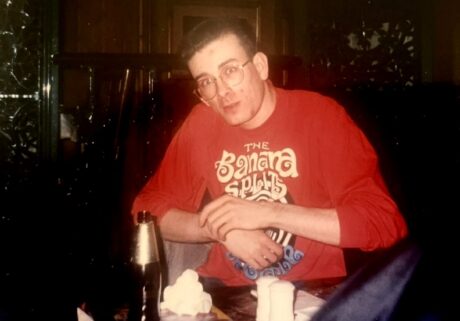
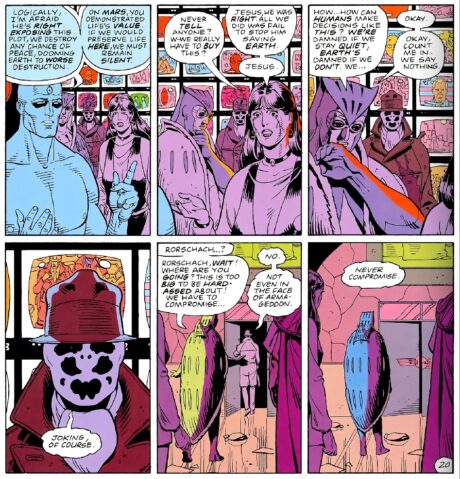
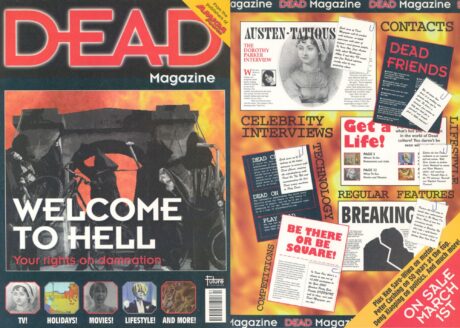
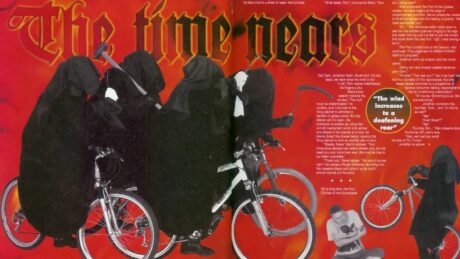
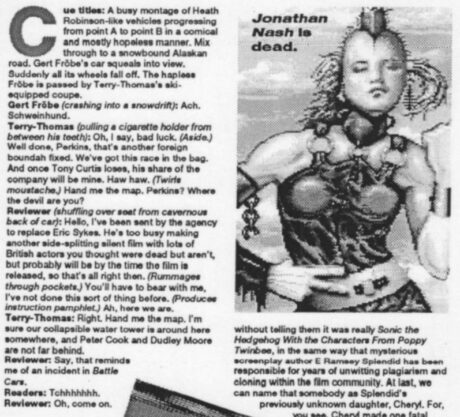

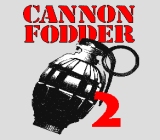

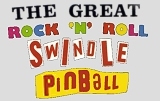

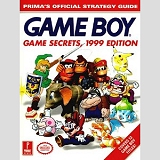

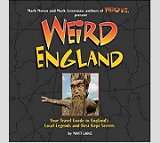
I think Nash’s shadow looms larger than you think.
Yes, it’s true that only a tiny fraction of humanity ever encountered his work. And an even tinier fraction paid any attention to it. I’d hazard a guess that no more than a thousand readers ever took note of his name or his writing. (Most ’90s game mag readers paid scant attention to bylines or actual talent, especially seeing as most of them were about twelve.)
But the people who *did* notice were profoundly affected. These people laughed, and nodded and made mental notes of all the jokes, all the absurdist asides, all the astonishing turns of phrase.
They took notice and they pinched them. Sprinkling the same language into their own writing, whether it be published journalism or just emails to chums.
He’s the Velvet Underground of games journalism (which is also dead, come to think of it. But still, eh?)
I read this with a curious mixture of emotions. I shall endeavour to remember his superb words to others.
I bumbled around JN’s prototype browser game ‘Henches’ for a while, carelessly (and occasionally drunkenly) breaking oddments &c. We would then exchange detailed, intricate emails that would eventually spiral into other topics entirely.
I still have these emails, it seems, and have smiled broadly whilst reading an exchange about how Talbot Rothwell was the master of the innuendo. I think we were trying to troubleshoot some aspects of planting flags in his game…
This was a lovely tribute, and took me back to the days of the WoS Forum when someone with an overly-cryptic name who was very, VERY clearly J Nash would pop up in his inimitable style and draw attention to either a point of principle which someone like Bruce Everiss was violating, the exciting possibility of finding a way to reach a distant, barely-visible, inaccessible island on the first level of Goldeneye, supporting a campaign for some cause for digital justice or other, or just championing the ipod touch as a games platform, supporting small, fun, anti-AAA games and generally being a lot of fun to read (unlike this four-mile long sentence, the form of which is the best tribute a humble old magazine reader could ever hope to muster for him). All the best to yourself and his family and friends.
Thank you for this. When J Nash died I recorded a tribute, edited and it wasn’t good enough. It wasn’t witty, clever or off the wall. I didn’t know him personally. It felt like trying to get clicks off the back of someone I enjoyed the work of. I canned it.
So it’s good to hear from someone who knew him and can flesh out the bones of who he was. Someone who as at YS and AP in that unique period where the 2 mags had so much crossover.
For me he was the YS editor who raged against the dying light and made it as good as it could be in those final months. YS2 is a must read. On one page he says it’s some ridiculous time in the morning and why does he bother doing this. Then he muses it’s because he cares. He cared alright! This was no journeyman editor doing the bare minimum (ahem, last couple of years of Amstrad Action).
AP gets all the heat because was probably read by 10 times as many people but Nash put something special into those final editions and The Big Final Issue is a work of genius which I understand took superhuman efforts.
I’m not surprised the Spectrum forums didn’t do much for his passing. Remember the ‘new’ edition of YS given away for free with an early Retro Gamer. Pretty much ignored the Future era despite aping the design style. I’m afraid that’s the attitude of much of the Spectrum scene. Dennis YS is cool, Future YS isn’t. Screw them.
So to anyone reading this, go and dig out YS2 if you want the wacky world of J Nash to the max. Probably the most unfiltered thing he did at Future as it’s unlikely any publisher ever read it being on the tape!
I know it’s a cliche, but when you lose someone who ‘feels like a friend,’ it will forever remain a cliche, unlike the friend that you’ve actually just lost, who is now dead. But will still live forever.
The J Nash I (all-too) briefly knew, was a gentle soul prone to very occasional indignant outbursts of volcanic fury that, once the molten lava had cooled a little (or something), you were seethingly resigned to knowing was right all along. The bast.
We never met in person, but we were virtually in-touch for a time in the late 1990s. By that, of course, I mean we kept in-touch, virtually. By that, of course, I mean we used virtual means of keeping in-touch. Chiefly by email, which was the style at the time.
I was distantly responsible for cocking-up Operation Rod Hull when my kindly offer of webspace fell through like a collapsed piano on the third floor of a rickety old building. My own similar (but not exactly the same) endeavour also soon collapsed, just like that very same (but different) piano on the ninth floor of an office block, ear-marked for imminent demolition.
J was moral to the core. Anyone who ever read anything he wrote would surely have realised he was on the side of the reader. At YS, he navigated a dearth storm of Spectrum releases, upping the magazine’s entertainment factor while steadying the ship (or shed) among the anti-gale of new releases.
At AP, once again, the writing was on the wall for those decent Amiga owners who actually might “shell-out their readies” (one of his most popular phrases) on a £40 game rather than have a friend put it on a blank disk. Sometimes a game wasn’t even worth reviewing so a flight of fantasy ensued to ensure at least the magazine was worth your “hard-earned mulah” (again, etc.)
My biggest regret with my brief encounter with J Nash was alerting him to the fact that a public-listed publisher had lifted the entirety of his and Rev Stu’s magnum opus AP2 website and given it away free to the lolling-tongued readership of what was once a rival magazine.
I should have known this would trigger his moral code but I (virtually) watched on as this sorry solicitor saga consumed him while he, quite rightly, sought to seek damages, draped in his Cape of Justice. He fought the good fight and, sorta, won. He was never the same after that. Certainly not towards me.
We spoke of collaborating together (natch) on things that both of us were good at but I was too star-struck to imagine working with the legend I’d accidentally befriended.
But anyway.
“JN’s prototype browser game ‘Henches’”
Wait, what now?
“He fought the good fight and, sorta, won.”
As I recall we got some heroin-and-sweets money out of it, so all was well in the end.
I believe I was invited to Henches on one of the occasions that J Nash teleported into the old WOS Forums (as were some of the other regulars; names I recognised and thoroughly enjoyed daubing deliberately-misspelled graffiti about*).
It was “Urban Dead But On The Am…um…Featuring Criminal Gangs”. Naturally it sprawled in scope as an accident would occur that lead to inspiration, testing, further accidents, baffled email threads, enormous digressions, the entire collection of stock music used for the Ren & Stumpy soundtracks, reminiscences about Ski Sunday and *ideas such as being able to mix paint and leave graffiti to insult/enlighten friends, enemies, frenemies and eiends.